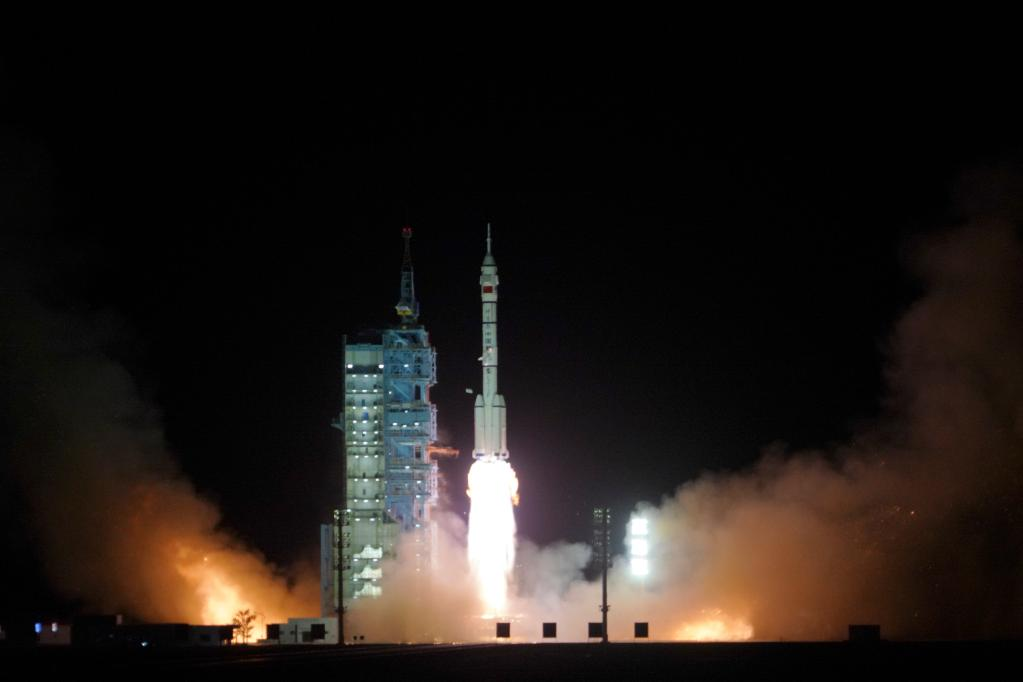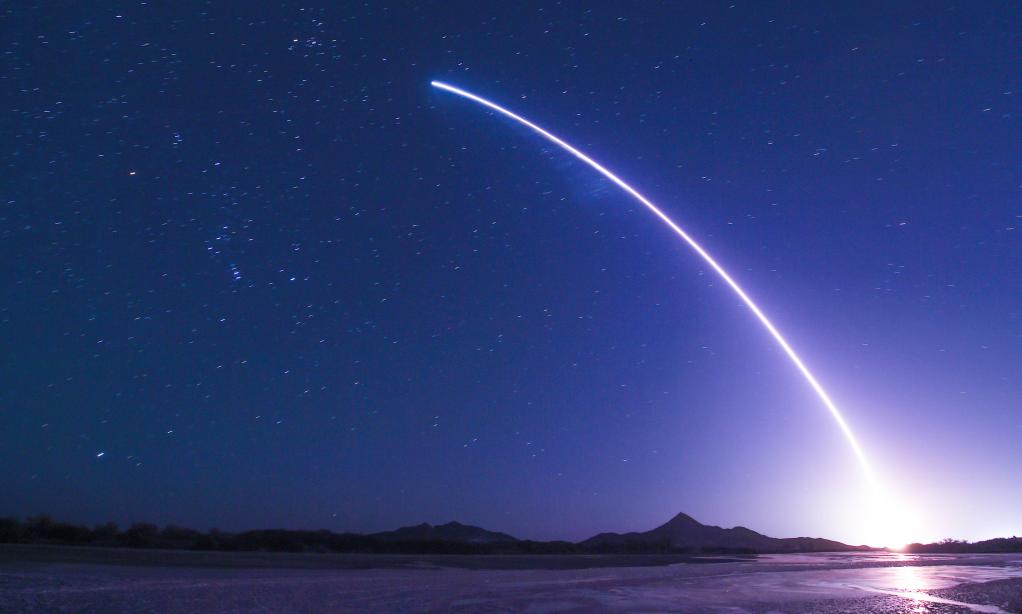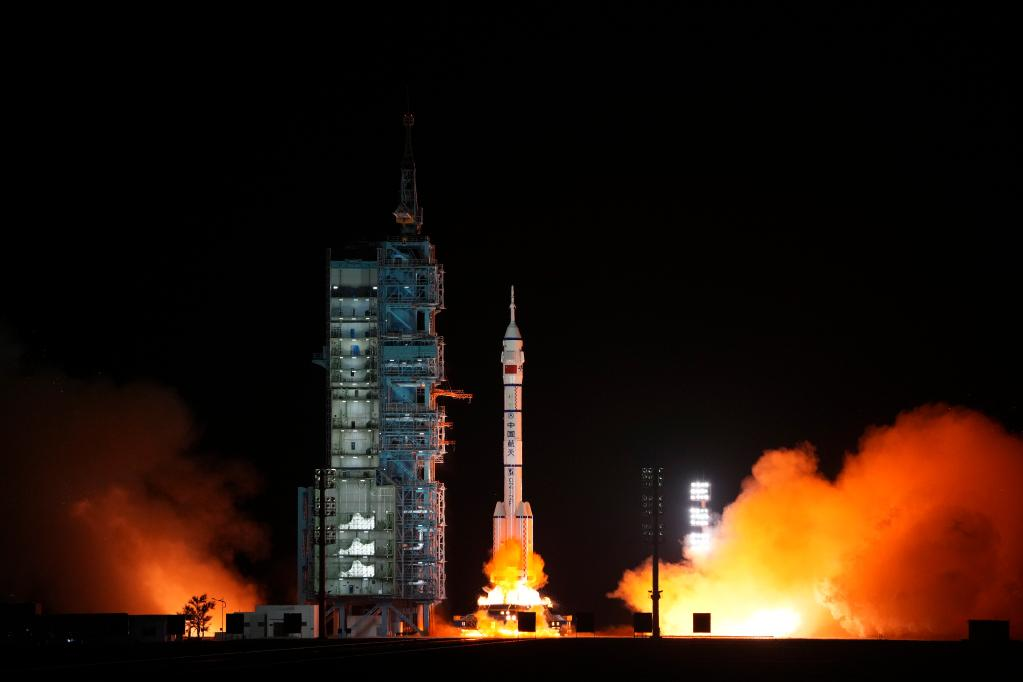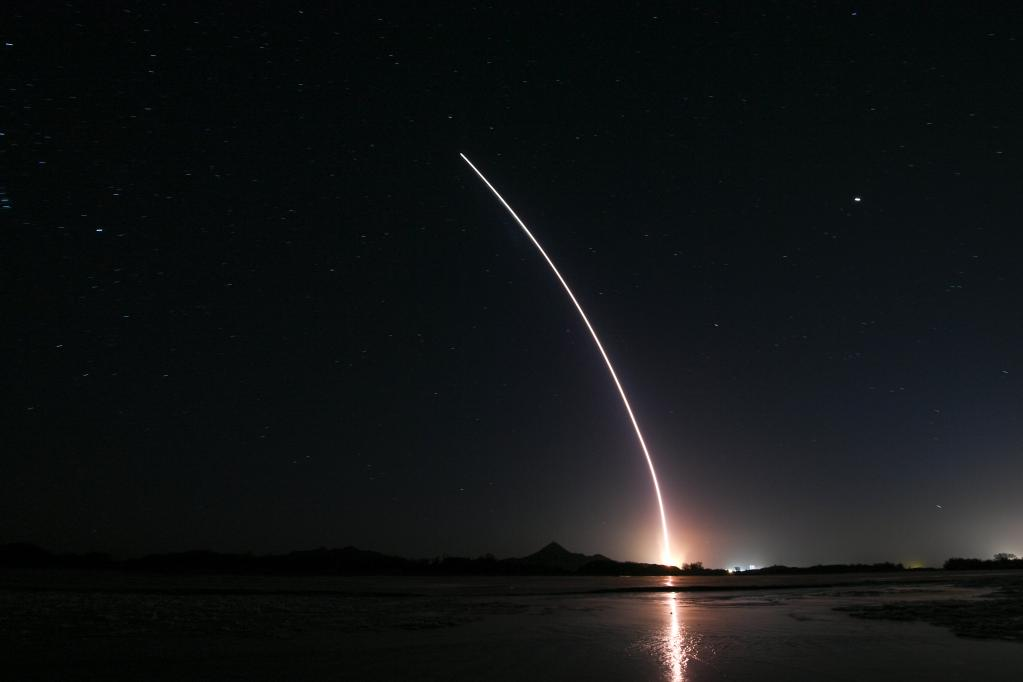
The manned spaceship Shenzhou-15, atop the Long March-2F Y15 carrier rocket, blasts off from the Jiuquan Satellite Launch Center in northwest China, Nov. 29, 2022. (Xinhua/Li Gang)
JIUQUAN, Nov. 29 (Xinhua) -- China launched the manned spaceship Shenzhou-15 on Tuesday night, with three astronauts onboard due to meet with their colleagues on the country's space station and conduct a work handover.
The spaceship, atop the Long March-2F Y15 carrier rocket, blasted off from the Jiuquan Satellite Launch Center in northwest China at 11:08 p.m. (Beijing Time), according to the China Manned Space Agency (CMSA).
About 10 minutes after the launch, Shenzhou-15 separated from the rocket and entered its designated orbit. The crew members are in good shape and the launch is a complete success, the CMSA declared.
After entering orbit, the Shenzhou-15 spaceship will make a fast, automated rendezvous and dock with the space station combination.
The Shenzhou-15 astronauts will, for the first time in China's space history, conduct an in-orbit rotation with the Shenzhou-14 crew, who were sent to the space station in June, said the CMSA.
The rotation can verify the feasibility of the regular rotation mode that will follow, according to Gao Xu, a senior spaceship designer at the China Academy of Space Technology.
During their mission, the Shenzhou-15 crew will carry out tests related to long-term residence in China's space station at its three-module configuration, Ji Qiming, assistant to the CMSA director, said at a press conference on Monday.
The crew will also unlock, install and test 15 scientific experiment cabinets, and carry out more than 40 experiments and tests in the fields of space science research and application, space medicine and space technology, Ji said.
They will conduct extravehicular activities (EVAs) three to four times and complete the installation of the Mengtian lab module extended pump sets and the exposure payload platform, Ji said.
The astronauts need to master the operation skills of the new extravehicular spacesuits, node cabin of the Tianhe module, mechanical arms and other facilities and equipment as well as relevant emergency fault dealing methods, according to the China Astronaut Research and Training Center. These requirements call for high standards in terms of physical strength and extravehicular operational skills.
The crew will also verify the exit mode of the cargo airlock cabin of the Mengtian module, and cooperate with the ground to complete six cargo exit tasks. They will perform regular platform testing, maintenance, and space station affairs management, Ji said.
In addition, the Shenzhou-15 crew will carry out in-orbit health protection exercises, training and drills, Ji added.
It is the 27th flight mission since the country's manned space program was approved and initiated, and the fourth crewed mission for China's space station project.
The success of the launch marks the completion of all 12 launch missions planned in the key technology verification and construction phases of the space station.
The space station combination is now in a stable status with all equipment functioning well, ready for the rendezvous-and-docking of Shenzhou-15 and the following crew rotation. ■

The manned spaceship Shenzhou-15, atop the Long March-2F Y15 carrier rocket, blasts off from the Jiuquan Satellite Launch Center in northwest China, Nov. 29, 2022. (Xinhua/Lian Zhen)

The manned spaceship Shenzhou-15, atop the Long March-2F Y15 carrier rocket, blasts off from the Jiuquan Satellite Launch Center in northwest China, Nov. 29, 2022. (Xinhua/Li Gang)

The manned spaceship Shenzhou-15, atop the Long March-2F Y15 carrier rocket, blasts off from the Jiuquan Satellite Launch Center in northwest China, Nov. 29, 2022. (Xinhua/Bei He)



